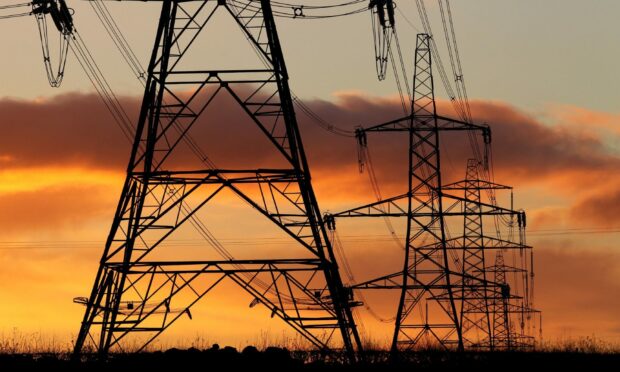Fuel poverty campaigners say it is a “scandal” that consumers in northern Scotland have been overcharged for electricity for years because of a flaw with a UK Government subsidy scheme.
They claimed it showed the country’s electricity pricing system is “self-evidently broken” and must be overhauled to finally deliver a fair deal for long-suffering bill-payers in the Highlands and Islands, Grampian and Tayside.
We revealed the hidden electricity price hike earlier this week.
The issue emerged as soaring bills continue to cause misery across a nation gripped by an ever-escalating cost of living crisis.
It involves a “distortion” at the heart of the UK Government’s Hydro Benefit Replacement Scheme (HBRS) which means consumers have not been fully benefitting from the initiative for years.
The problem has meant that suppliers contracted to “embedded” electricity generators have been benefitting, by an estimated £49 million over the last three years, instead of helping to fund the subsidy.
The issue was first flagged up in 2019 but ministers are only now proposing a solution.
Di Alexander, the former chairman of the Scottish Government’s rural fuel poverty task force, condemned the treatment of communities.
‘Gaping wound’
“The Hydro Benefit Replacement Scheme has long since been little more than a sticking plaster for a gaping wound and the latest so-called ’embedded benefit’ tariff hike scandal just adds further insult to the severe electricity price injury that north of Scotland households continue to suffer,” he said.
Consumers north of the central belt pay the highest costs for electricity in the UK, partly due to a controversial regional pricing system.
The HBRS is designed to soften the blow, subsidising the area to the tune of £93 million last year, ensuring bills in northern Scotland are £60 a year on average lower than they would be.
It has now emerged that the badly-needed support to ease the cost of energy would have been greater if the distortion had not been skewed to benefit some suppliers.
Campaigners say the HBRS is not fit for purpose and the regional pricing system should be completely scrapped, enabling bill-payers in all regions to be charged the same for electricity distribution.
Mr Alexander, who is chairman of the Highlands and Islands Housing Associations Affordable Warmth Group, criticised the HBRS.
“The notional £60 HBRS reduction on electricity bills goes nowhere near addressing the electricity distribution costs problem it purports to address,” he said.
“Even after HBRS is applied, north of Scotland households still end up paying 40% more for than the average UK household.
“How is that fair when household energy costs and fuel poverty levels are so much higher in the furthest north and coldest part of the UK?”
Mr Alexander added: “The UK’s energy pricing system is self-evidently broken and HBRS is now almost totally irrelevant.
“The only equitable solution is to move and move quickly to universal pricing – charging everyone in the UK exactly the same price per unit for their electricity consumption, regardless of the component distribution costs and other charges.”
The HBRS dates back to the 1940s, when it was acknowledged that the high costs of providing power to remote consumers in the Highlands and Islands should be offset by the contribution of small hydro-electric stations and dams in the area.
Under law, it must be reviewed every three years, with the latest consultation getting under way last week.
The UK Government insists it would be too complicated to calculate how much north of Scotland consumers have lost as a result of the “embedded benefit” distortion, or how much they would gain when the loophole is closed.
To resolve the issue, it proposes the scheme’s supplier charge should in future be calculated on the basis of gross rather than net demand.
‘Hugely disappointing’
Robert Leslie, energy officer at Orkney Housing Association Ltd, said the HBRS was not fit for purpose.
“As a member of the Highlands and Islands Housing Associations Affordable Warmth Group, we have lobbied the UK Government for a more realistic Hydro Benefit Replacement Scheme for almost a decade, so it is hugely disappointing to find mistakes in the scheme have cost households money over years,” he said.
“An urgent resolution is surely the least we can expect from the UK Government now, as it launches the latest consultation on the scheme.”
A UK Government spokesman said: “Our Hydro Benefit Replacement Scheme protects consumers in the north of Scotland from high energy prices by providing an annual cross-subsidy of around £90m to reduce electricity distribution charges – saving an average of £60 annually for each household in the region.”


